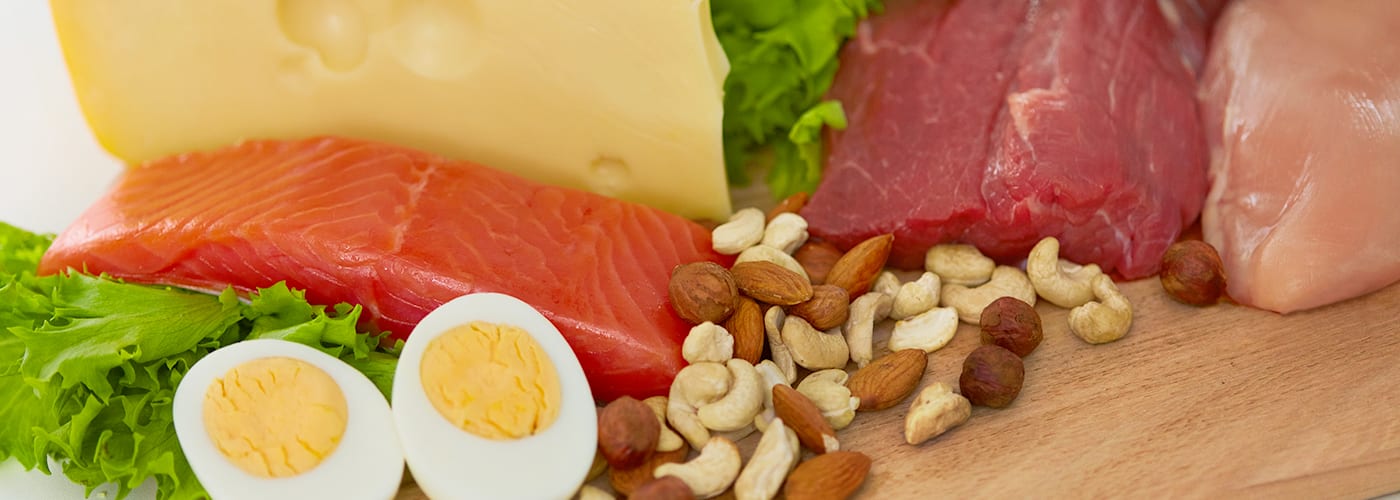When it comes to food, many of us naturally shy away from a low-carb diet because we love our carbs, such as cookies, cupcakes, pasta, and pretty much anything that taste yummy. We sometimes don’t even realize how many carbs we consume daily. The average person consumes around 225-325 carbs per day. Carbs might be tasty and satisfy our unhealthy cravings. However, have you ever stopped to think about what carbs are?
Carbs are essentially sugar when broken down in the body. When we eat carbs, our blood sugar rises, causing an insulin response. Insulin then takes the glucose (sugar/carbs) and places it into fat cells. Fat cells can surround our nearby organs and cause major health concerns over time. Decreasing the number of carbs taken in can have a direct effect on the use of our stored fat cells as energy. Using the existing fat stores in our body as energy causes BMI and body fat percentages to lower.
Eating a healthier, low-carb diet can greatly benefit your health, wellness, and body composition.
The Benefits You Can Achieve from a Low-Carb Diet
Weight Loss
One of the reasons low-carb diets tend to be so popular is the weight loss aspect. Many of us struggle to remove unwanted pounds from our body frame. However, when changing to a low-carb diet, the pounds melt away. When reducing the number of carbs in your diet, your insulin levels don’t spike up, so you are reducing your body from storing excess fat. Low-carb diets help rid your body of water weight, which is the initial cause of weight loss. Over time your body develops a more efficient metabolism and is better at burning more fat as fuel.
Abdominal Fat Loss
Yes, indeed, we can’t specifically target fat loss in a specific area, although lower-carb diets have been linked to lower body fat in the abdominal region. When you lower your carbs, you are regulating the amount of insulin your pancreas produces. The fewer insulin spikes you have, the more your body can focus on using your existing fat cells as energy. Abdominal fat, indirectly of a low-carb diet, will diminish over time. The accumulation of abdominal fat can be harmful to your health. Diseases such as type II diabetes are more likely to occur with higher amounts of fat surrounding the abdomen. The loss of abdominal fat creates a flatter stomach and smaller waistline, giving you a leaner appearance.
Better Health and Wellness
One of the greatest benefits of reducing your carbs is the improvement of your health. Low-carb diets can cause an increase in your good cholesterol (HDL). The HDL can remove bad cholesterol (LDL) from arteries and other blood vessels where LDL stores itself. When a buildup of LDL has accumulated in the blood vessels, the pathways become narrower, making it more difficult for blood to circulate through the body.
With the narrower blood vessel walls, there is an increased risk of LDL creating a clot, which can cause a stroke or sudden heart attack. HDL works to help eliminate or decrease LDL cholesterol. HDL cholesterol attaches to LDL and is transported to the liver, where it is metabolized and excreted. Decreased LDL cholesterol reduces the chance of heart disease, hypertension, and diabetes.

Related Stories
Red, White, and Soothe: How HiDow Helps You Recover in the Heat
Recovery that works in winter doesn’t always hold up in the heat. The body reacts...
Jul
Massage Gun Showdown: How the Power Duo Compares to Traditional Methods
Have you ever considered that a handheld device could revolutionize your muscle recovery? With the...
Jun
Fatherly Fitness Tips For Men’s Health Month
Men’s Health Month is more than a date on the calendar—it’s a call to action....
Jun
Built to Move: The Everyday Recovery Edit
Movement is what keeps us going—literally. Whether it’s recovering after a run, loosening up after...
Jun
Unlocking The Secret To Tissue Injury Recovery With TENS/EMS Devices
Have you ever wondered why some injuries take longer to heal than others? Tissue injuries...
May
Get Mobile With HiDow TriggerFlex Tools & TriggerFlex 2.0
Tight muscles holding you back? Whether you’re dealing with daily tension or post-workout soreness, recovery...
May